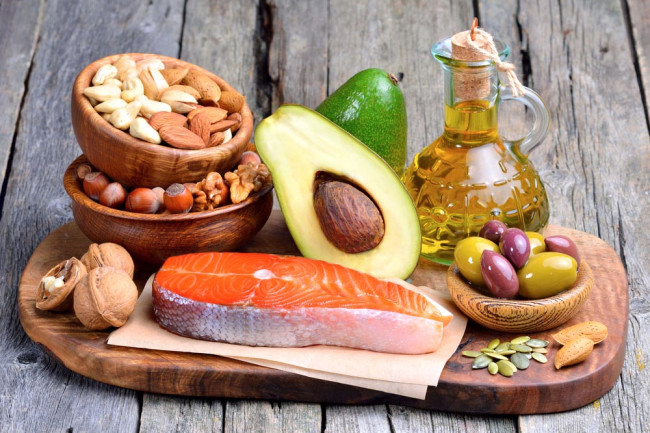
Fat can be a complicated subject, we’ll try and make it simple…
Our body needs fat but it is important we only have a certain amount and the correct type (we’ll come-on to that).
To put it simply a small amount of fat is part of a healthy, balanced diet. Fat helps the body get vitamin A, vitamin D and vitamin E and it also allows the body to use it as energy (if needed).
BUT and here’s the important bit…if the body absorbs all the vitamins it needs and it doesn’t need to use it as energy…it will stay in your body and turn into body fat.
This body fat will increase the level of cholesterol in your body and increase the risk of heart disease.
There though different types of fat which can influence how much cholesterol is in your body…
First, the BAD fat…
Saturated fat
Too much saturated fat can increase the amount of cholesterol in the blood, which can increase the risk of developing coronary heart disease. Foods high in ‘Saturated fat’ include…
- fatty cuts of meat
- meat products, including sausages and pies
- butter, ghee, and lard
- cheese, especially hard cheese like cheddar
- cream, soured cream and ice cream
- some savoury snacks, like cheese crackers and some popcorns
- chocolate confectionery
- biscuits, cakes, and pastries
- palm oil
- coconut oil and coconut cream
The UK government recommend that:
- men should not eat more than 30g of saturated fat a day
- women should not eat more than 20g of saturated fat a day
- children should have less
It is hard to keep track of how much fat there is in different foods, one-way we can is to look at food labels, click here for our guide.
Next the GOOD fats…
Unsaturated fats
The NHS advise:
If you want to reduce your risk of heart disease, it’s best to reduce your overall fat intake and swap saturated fats for unsaturated fats.
There’s good evidence that replacing saturated fats with some unsaturated fats can help to lower your cholesterol level.
Examples of such fats include:
- olive oil, rapeseed oil and spreads made from these oils.
- avocados.
- some nuts – especially unsalted, such as almonds, brazils, and peanuts.
- seeds.
- kippers, herring, trout, sardines, salmon, mackerel.
It is recommended to have at least two portions of fish a week with at least one of them being oily.
To read more information about fats you can visit : https://www.bhf.org.uk/informationsupport/support/healthy-living/fats-explained

